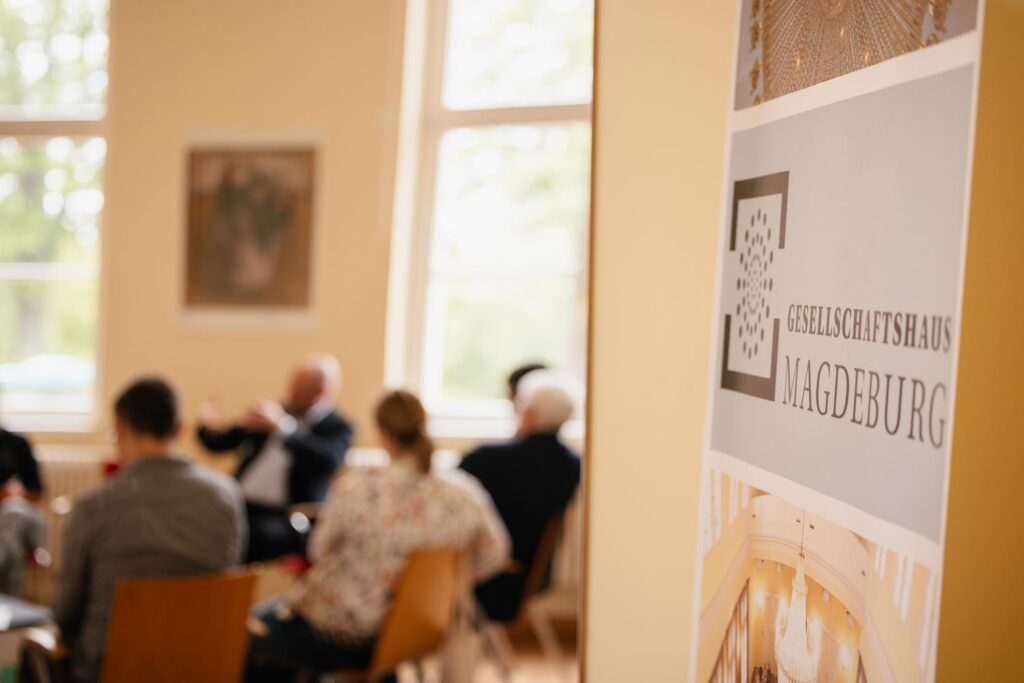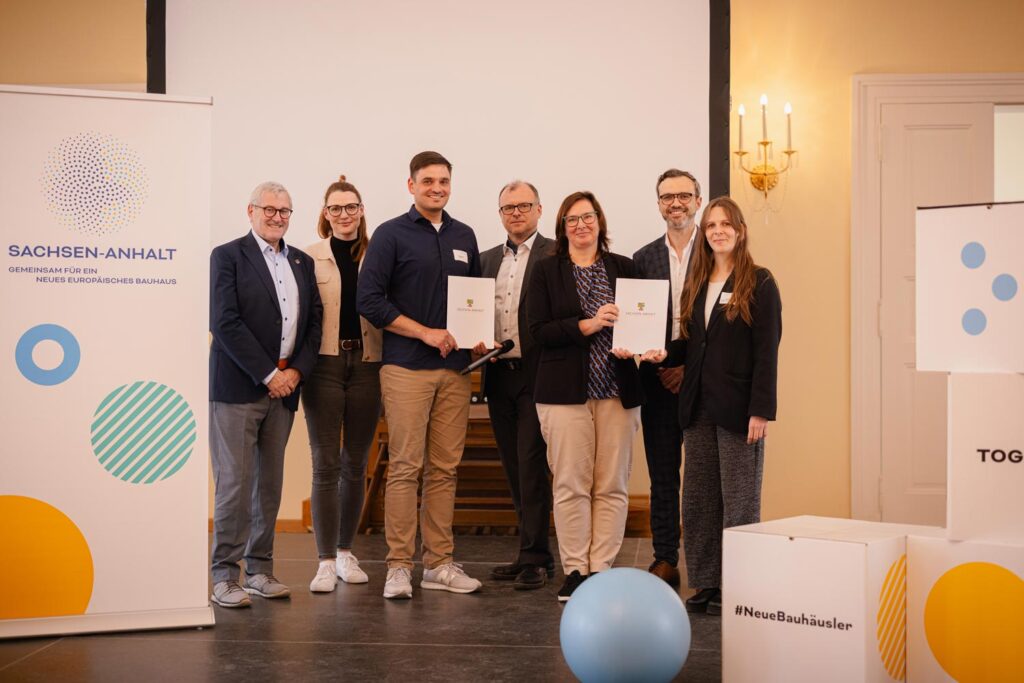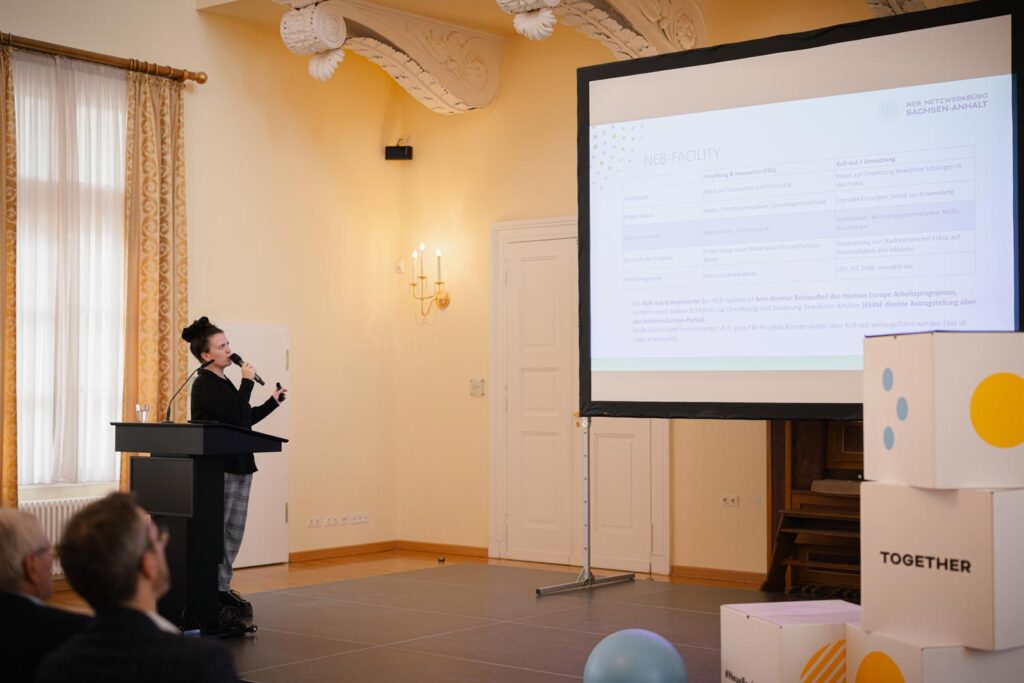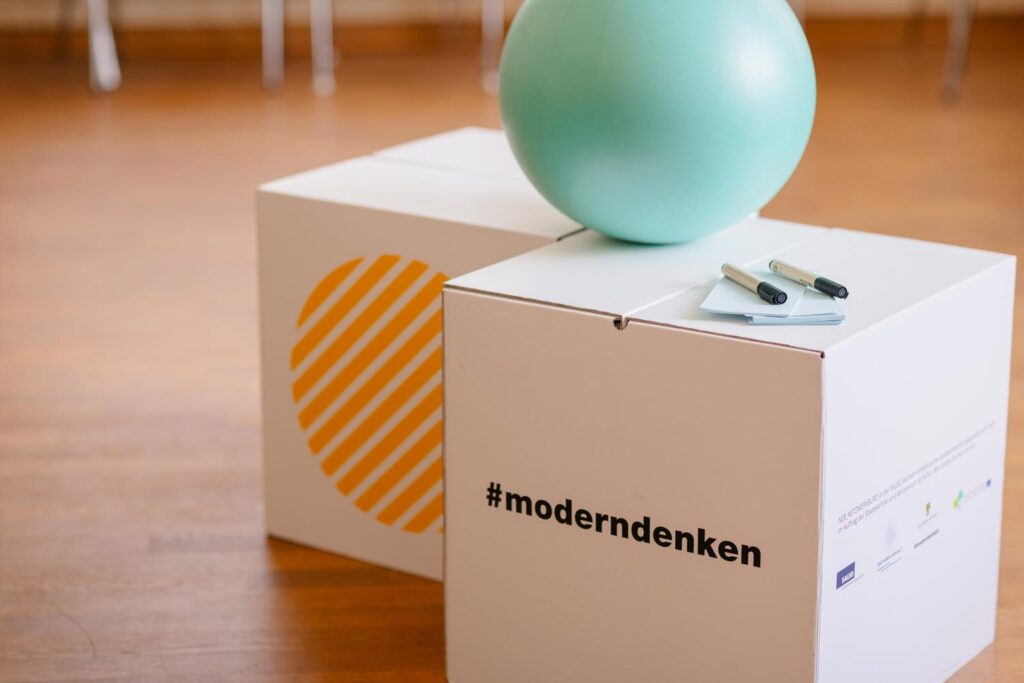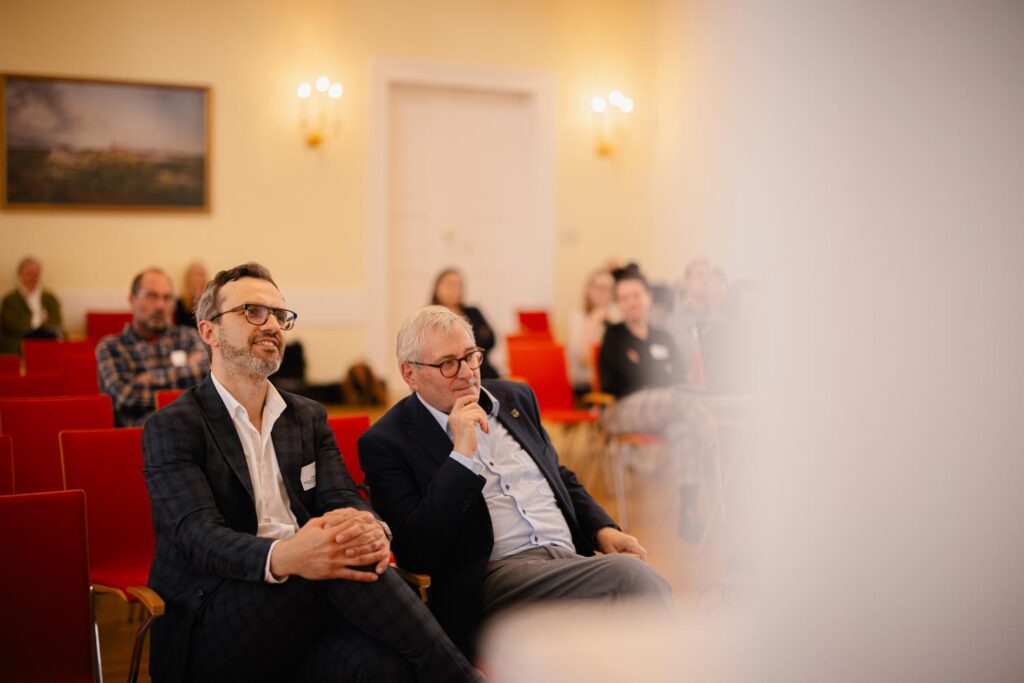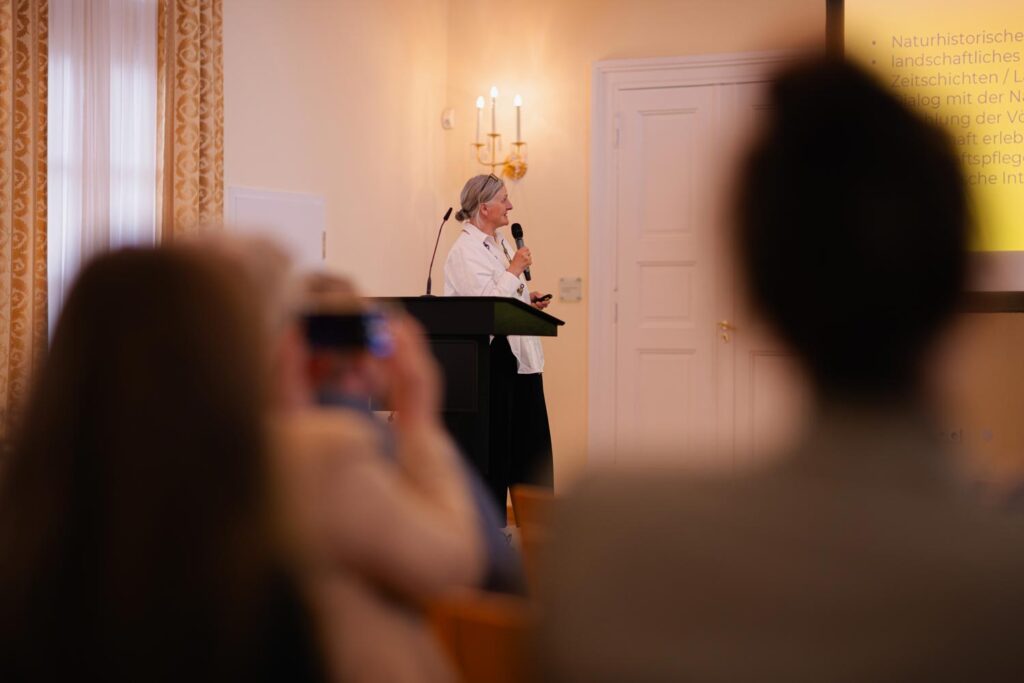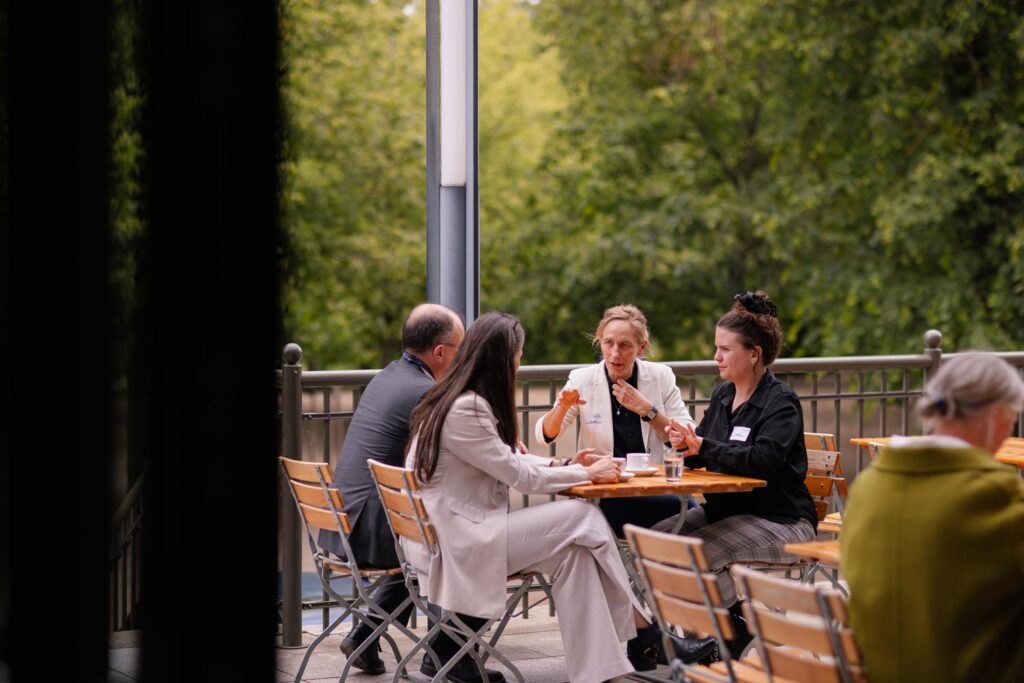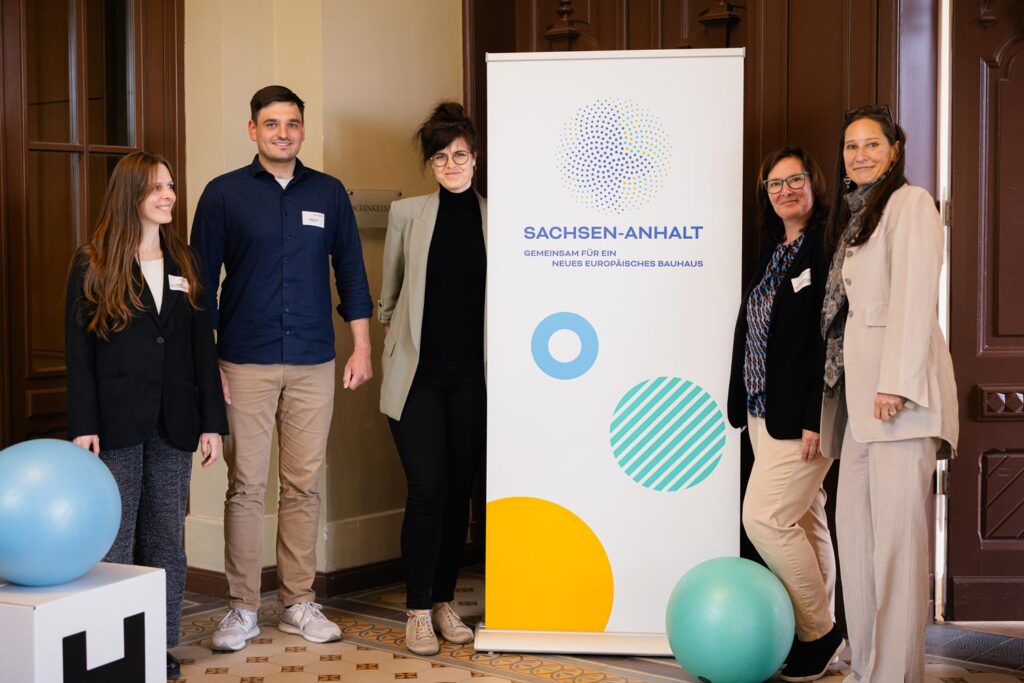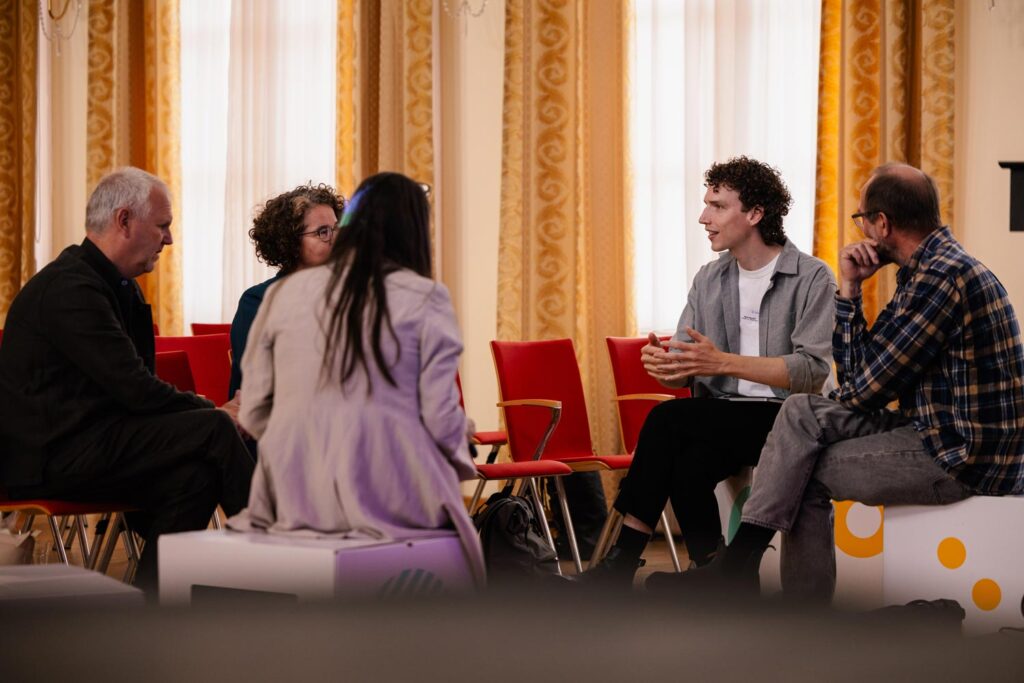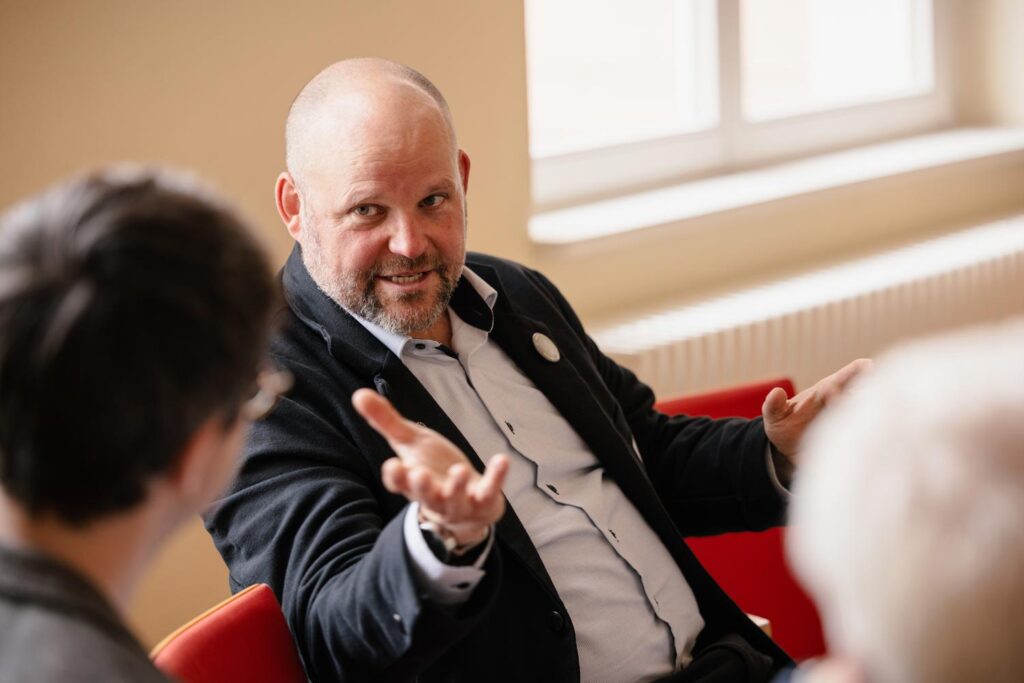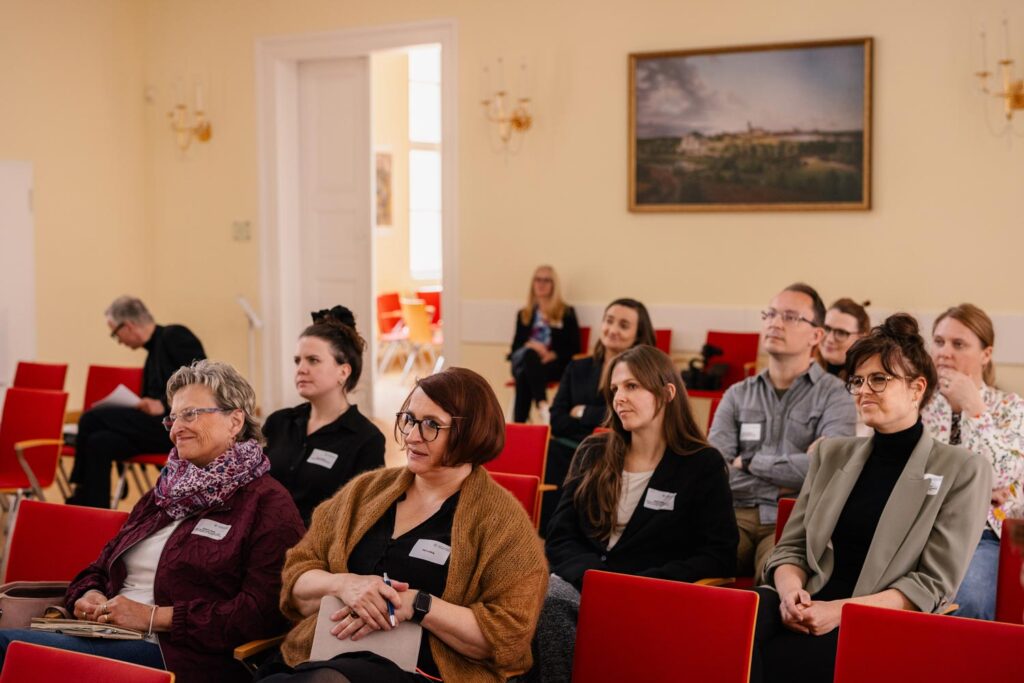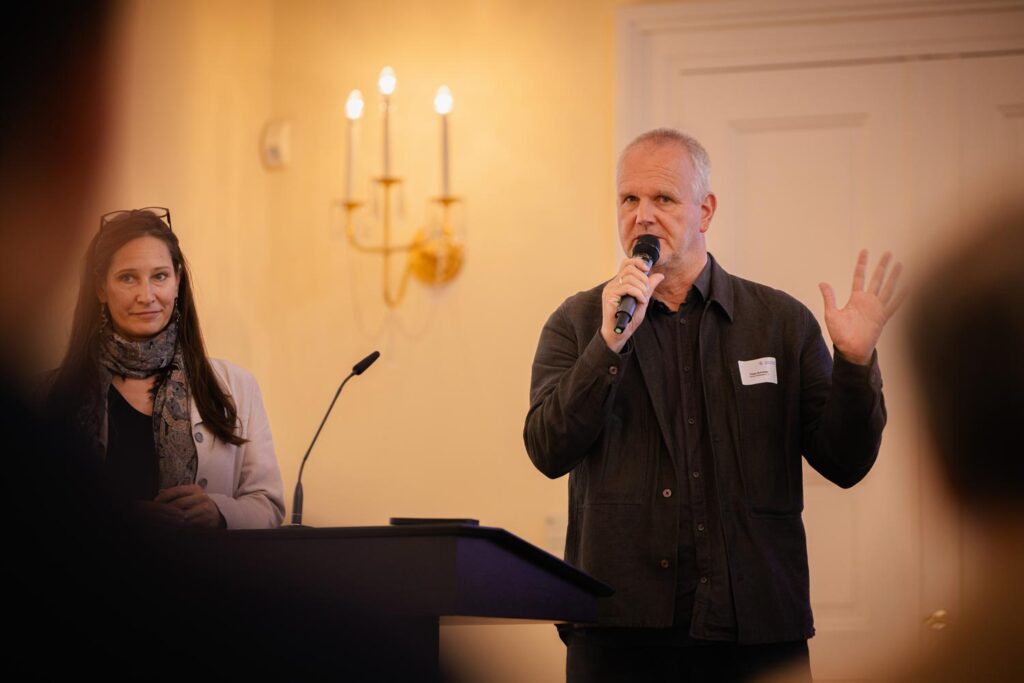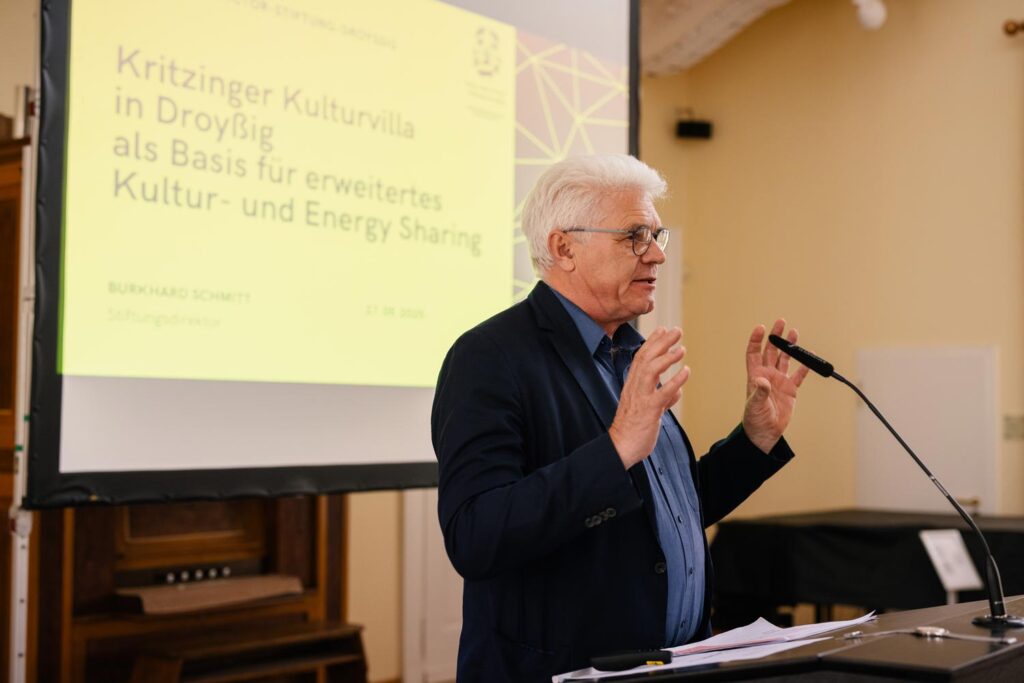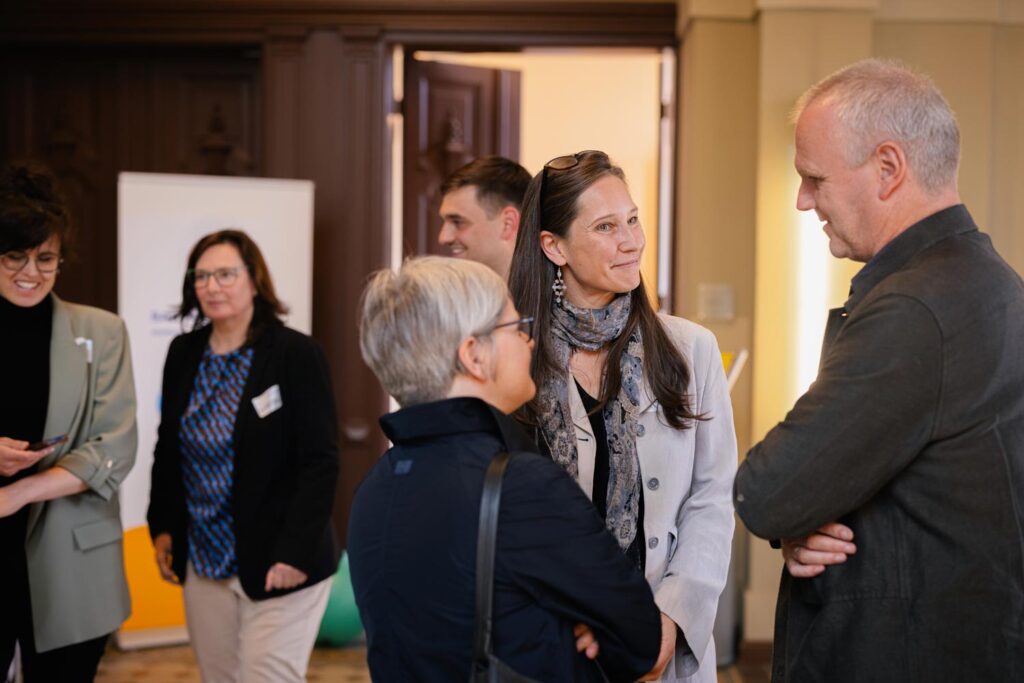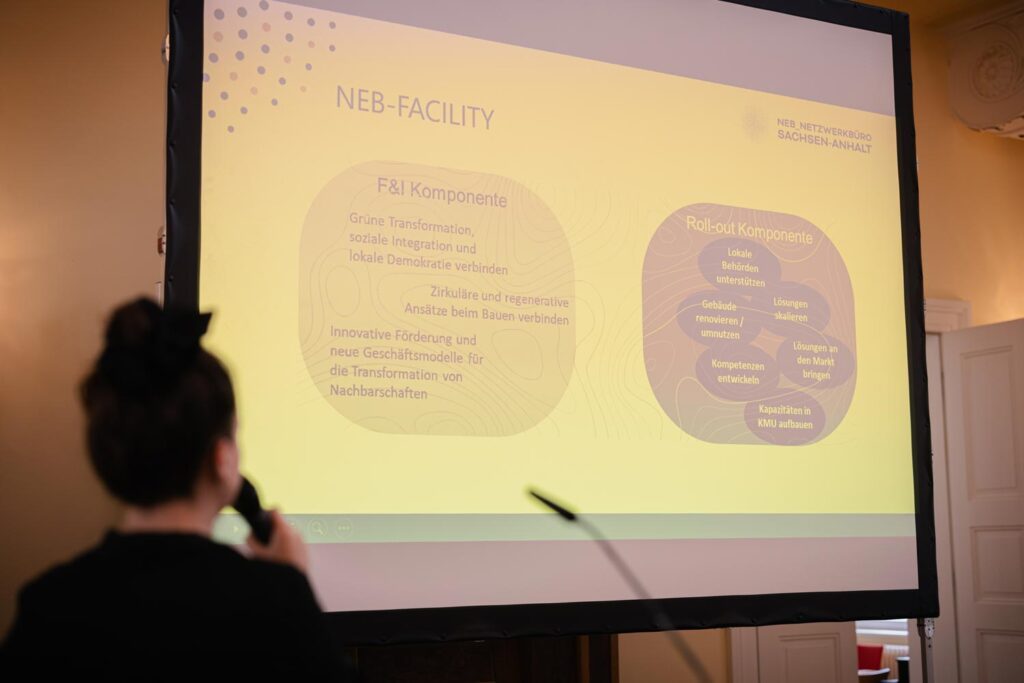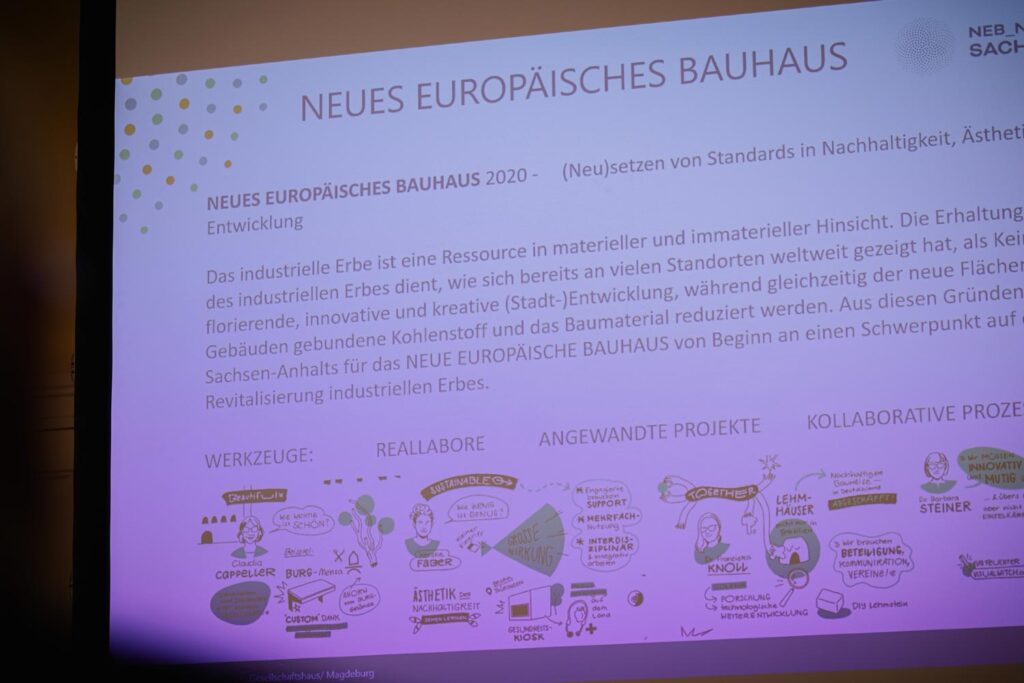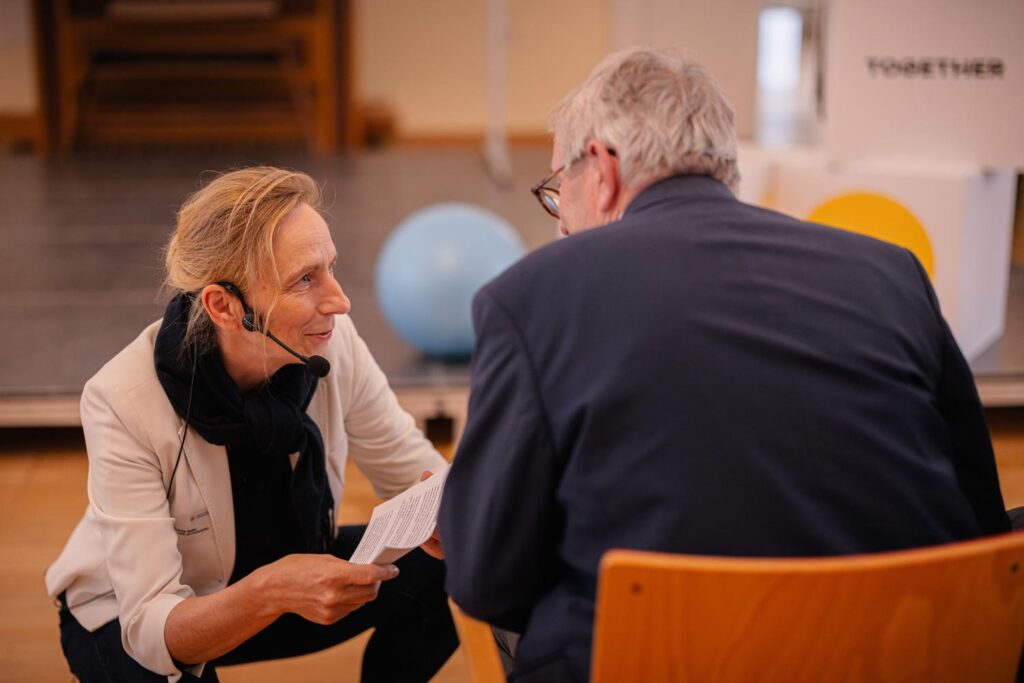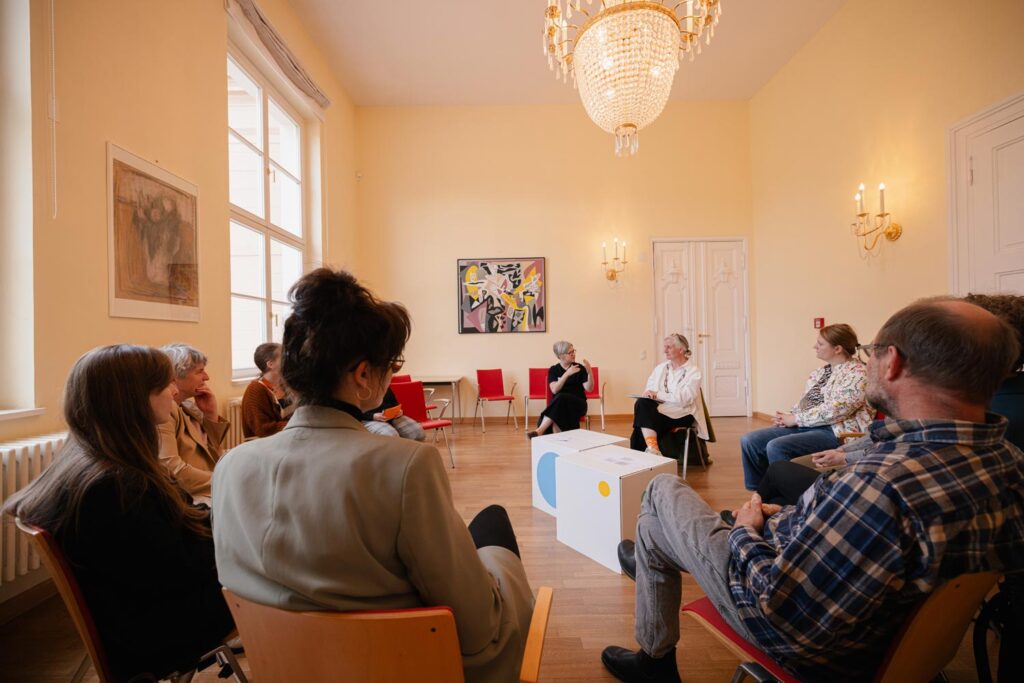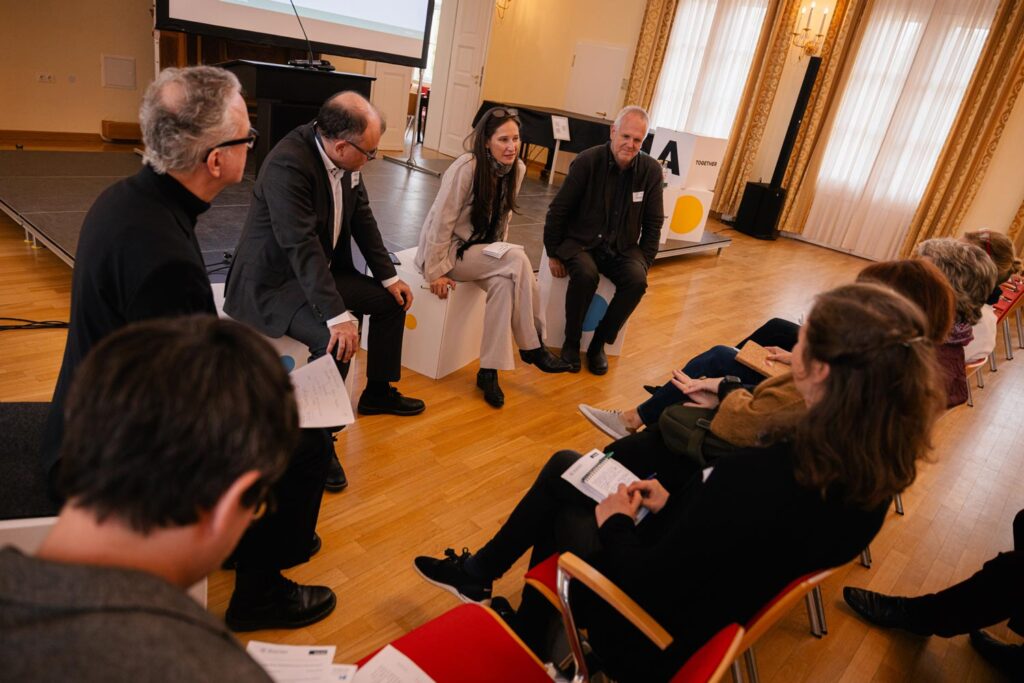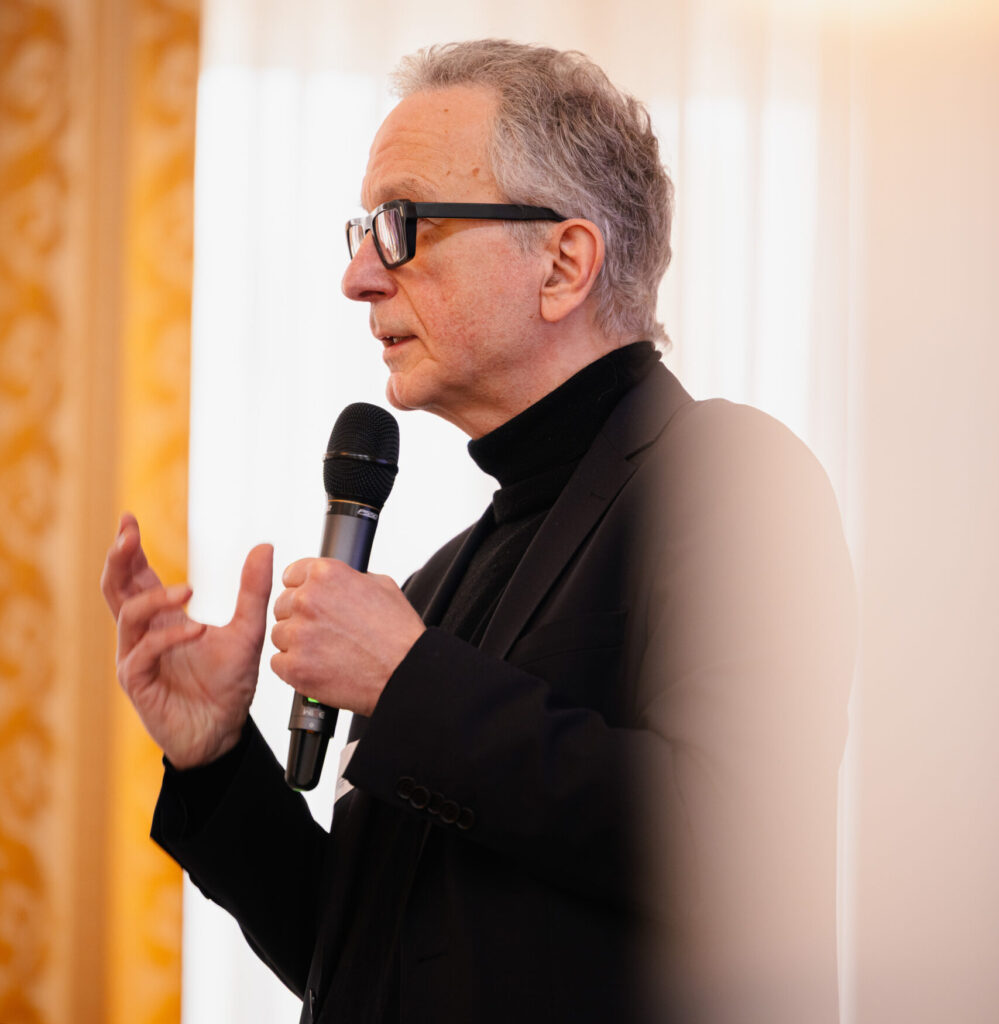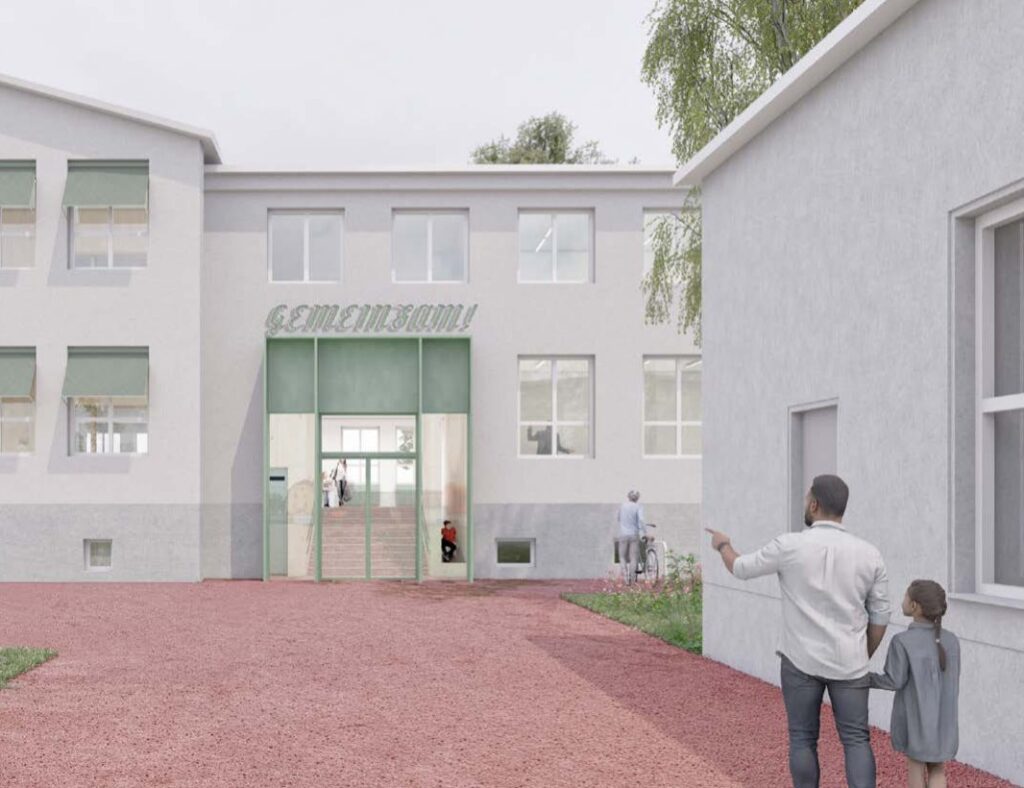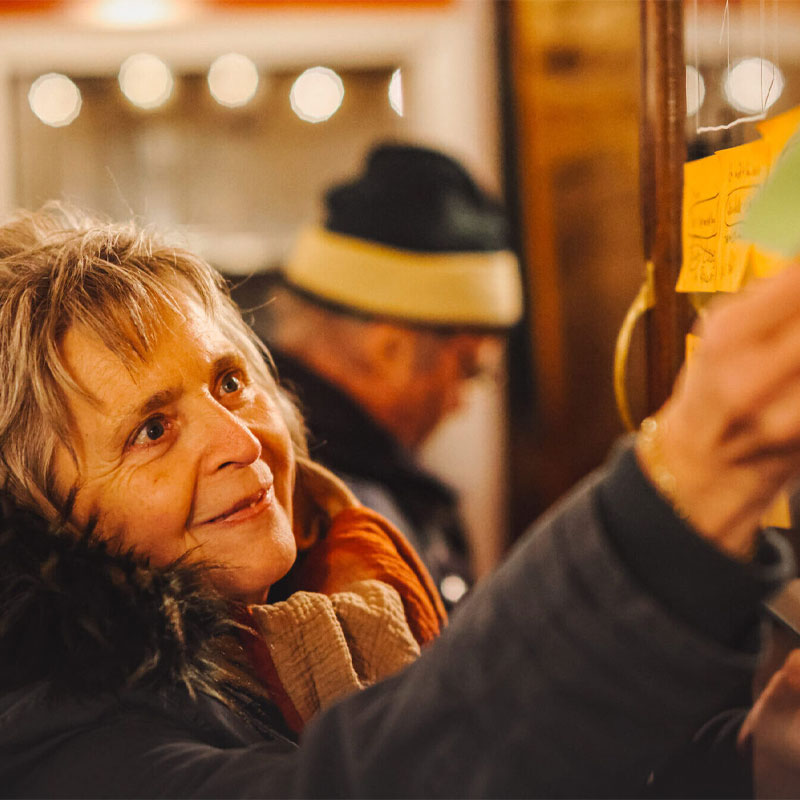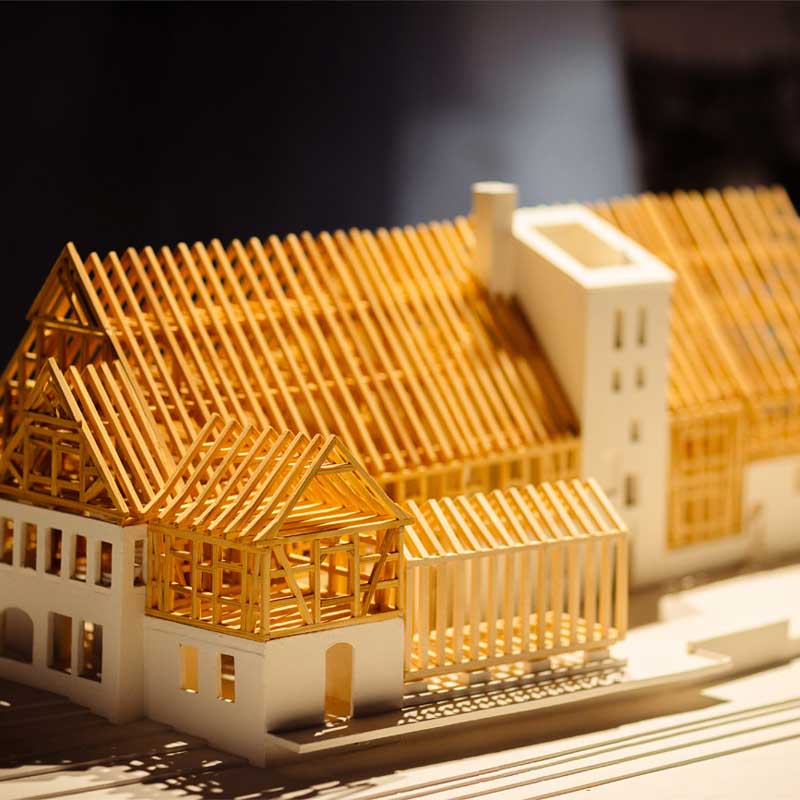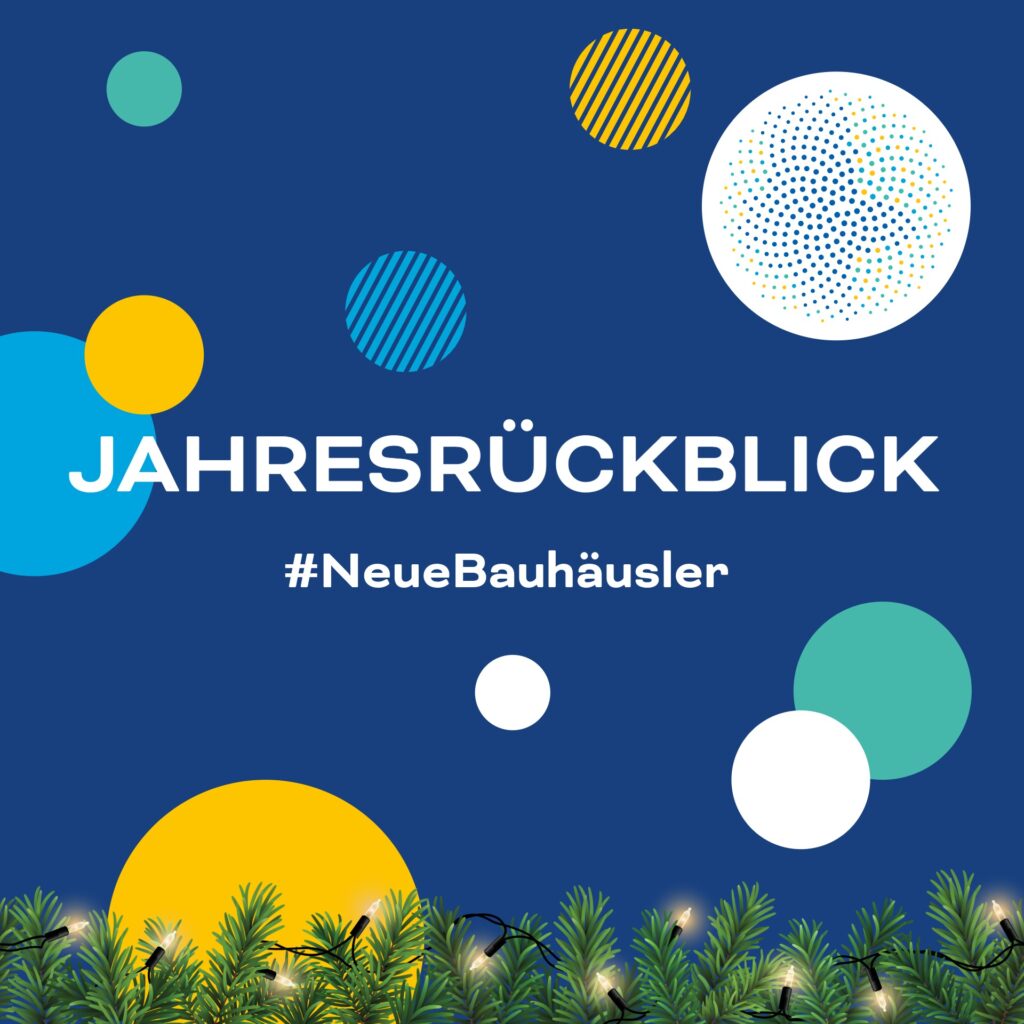The third major NEB_MEETS networking event held by the NEB_FAMILY on May 27, 2025, focused on one thing: the NEB_CRITERION: TOGETHER! The NEB_NETZWERKBÜRO (NEB_NETWORK OFFICE) had invited guests to a “think tank” at the Gesellschaftshaus in Magdeburg's Klosterbergegarten on behalf of the Structural Change Unit in the Central German Mining Region. Eight short presentations provided impetus, followed by discussions in eight smaller “salons”: How do we get started, how do others do it, and how do we shape the future together? Participants discussed and reflected, encouraged and supported each other. It was a day full of intensity, activity, and energy. The presentation of a funding decision to the NEB_PROJECT “LandKiez Thondorf” addressed GEMEINSAM in a very practical way. At the end, urban planning and architecture theorist Prof. Dr. Christopher Dell summarized what he had heard in a captivating lecture. He was certain: this NEB_MEETS offered insights that are never otherwise available en bloc.
Anyone who thought the day would be boring was very much mistaken. The NEB_NETZWERKBÜRO struck a chord with its “thinking salon” format: No long speeches, just talking to each other! The third meeting of the NeueBauhäusler community was structured into short presentations followed by discussion rounds with the speakers, accompanied by moderators and summarized for everyone afterwards.
Part I focused on participation” with “activation,” “co-creation,” and “grassroots.” The following individuals provided food for thought: Martin Naundorf from the OSTEN Festival Bitterfeld-Wolfen, where a community of artists activates abandoned cultural sites for and with local people; Felicitas Nadwornicek on the Summer of Pioneers in Dessau-Roßlau, where creative minds enliven the city and countryside for a summer and longer, and Thomas Fischer from the Saxony-Anhalt Industrial Culture Network, who reported on the hundreds of initiatives that preserve valuable industrial culture in their homeland.
Part II focused on the theme of “Multiple Levels,” examined through the lenses of “local,” “State of Saxony-Anhalt,” and “international.” Burkhard Schmitt, Director of the Fürst-Otto-Victor Foundation Droyßig, reported on the NEB_Project “Kulturvilla,” where the village and school communities have joined forces to create a space for learning and interaction. Annett Kautz spoke about the state competition REVIERPIONIER, which successfully promotes innovative ideas in a transformation region. Thies Schröder shared insights from Forum Rathenau, which approaches the shift toward a resource-conscious society with a global perspective and local implementation, enriched through international exchange and a broad spectrum of strategic approaches.
Part III focused on “Transdisciplinarity,” viewed from both administrative and informal perspectives. Dr. Mario Kremling of the SALEG Group presented applied transdisciplinary planning using the example of integrated municipal development concepts. Ulrike Rothe, representing the Förderverein für die Umweltkirche Zangenberg, introduced the audience to the proposed NEB_PROJECT Umweltkirche Zangenberg, where scientific expertise and local knowledge merge into a learning landscape.
The subsequent smaller “thinking salons” were critical, engaging, and intensive. Participants spoke plainly about the challenges involved in turning an idea into a potentially fundable project and in working collaboratively. They discussed how to find partners, build networks, navigate structures, determine when an idea is viable or eligible for funding, build communities, and how invaluable networking and cross-regional exchange can be. It also became clear how powerful culture is as a driver of transformation processes—and that a successful future requires all generations. Thoughts and ideas were shared in a smart and inspiring manner, with best practices exchanged in the truest sense of the word. This continued right to the end of the NEB_MEETS, which concluded with an overview of current funding opportunities for NEB_PROJECTS and beyond.
A highlight of the event was the presentation of the funding notice for the NEB_PROJECT “LandKiez Thondorf” by State Secretary Dr. Jürgen Uhde.
The architecture-theoretical and philosophical closing lecture by Prof. Dr. Christopher Dell brilliantly placed the day's insights into a broader context: starting with Lenné’s Klosterbergegarten as an experimental field of its time and an expression of a “new urbanity” and a “training space” for an emerging urban culture, he referred to Plato’s idea of the “good city” and Aristotle’s concept of the “just city,” cited Hannah Arendt’s Critique of Judgment, and invoked the socially transformative ideas of the avant-garde Bauhaus. Ultimately, he posed the critical question: How do we bring the city to life in a time “when society is fragmenting, and one peers through a magnifying glass in search of seemingly lost democracy?” For him, the answer lay in the diverse projects and initiatives presented – which he described metaphorically as “machines,” each a “training apparatus,” charged and challenging – operating with different knowledge bases, methods, and in smaller structures and scales, yet collectively setting a powerful “move” in motion across the region. TOGETHER!
BEAUTIFUL. SUSTAINABLE. TOGETHER.
#NeueBauhäusler
Impressions
